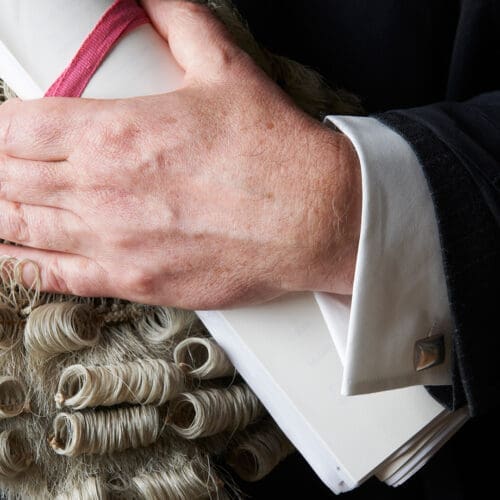Adjudication enforcement: indemnity costs and waiving rights to challenge
November 2024In Essential Living (Greenwich) Ltd v Conneely Facades Ltd [2024] EWHC 2629 (TCC), the court ruled on whether an adjudicator had breached the rules of natural justice, as alleged by the defendant. After concluding that there was no such breach, the court concentrated on the defendant’s conduct in the adjudication prior to deciding to award costs on the indemnity basis. The judgment reflects the court’s robust approach to enforcement of adjudication decisions and provides considerations for parties managing adjudication processes and making submissions.
Background facts
Essential Living (Greenwich) Ltd (‘Essential’) engaged the defendant, Conneely Facades Ltd (‘Conneely’), by a trade contract dated 14 June 2017 to carry out the design, construction, coordination and commissioning of rainscreen cladding, curtain walling, glass doors and glass screen works at a Greenwich Creekside development.
On 2 February 2024, Essential issued a notice of intention to refer a dispute to adjudication regarding Conneely’s alleged defective design and installation of the Corium brick clip cladding system. The Adjudication Notice included a claim for circa £1 million. Essential then served the Referral on 9 February 2024.
On 16 February 2024, Conneely’s solicitors sought disclosure of an earlier adjudication decision of Dr Mastrandrea dated 22 July 2019, together with the associated expert reports in that adjudication (‘the Mastrandrea materials’). The earlier adjudication was between Essential and another trade contractor on the project, Elements.
The basis of Conneely’s disclosure application was set out further in an email from the solicitors dated 19 February 2024. In brief, it asserted that the Mastrandrea materials were in support of Conneely’s position that the defects complained of in the present adjudication were a result of other parties’ breaches of contract and not Conneely’s workmanship failures. It was argued that the Mastrandrea materials would also support Conneely’s case that Essential was seeking double recovery of costs.
On 20 February 2024, the adjudicator rejected the disclosure application on the basis that the Mastrandrea materials predated the first appearance of the defect, and Elements’ and Conneely’s packages differed. He could not be persuaded that any payments made to Essential would have concerned the defects at issue in this adjudication, and stated the suggestion of double recovery was “fanciful”, and provided no basis for disclosing the Mastrandrea materials.
The adjudicator issued his decision on 19 April 2024.
Parties’ positions/arguments
Essential subsequently sought summary judgment against Conneely to enforce the adjudication.
Conneely objected to the enforcement on the basis that the adjudication decision was reached in breach of the requirements of natural justice (on 20 March 2024). On that basis, Conneely requested the adjudicator resign. In its skeleton argument, Conneely argued that at an early stage the adjudicator had decided the strength of the case and application for disclosure. A fair-minded and informed observer would conclude that there was a real possibility that he had pre-determined the case, and hence he was biased.
The legal requirements for natural justice objection in adjudication
The starting point enshrined in earlier case law[1] is to ask whether the fair-minded and informed observer would conclude that there was a real possibility that the decision-maker was biased. This is to be applied in the context of ‘temporary justice’ which characterises adjudication.
There are several relevant points of principle stemming from various cases:
- Adjudication decisions should be enforced summarily unless there is a serious breach of the rules of natural justice;
- Such breach must make “a material difference to the outcome”;
- The courts should approach complaints about alleged breaches of the rules of natural justice in adjudication with a degree of scepticism; and
- The adjudicator is not an arbitrator or a judge but has to carry out “onerous duties” because adjudication is a ‘rough and ready’ process carried out at speed.
Court’s decision
The court considered the adjudicator’s decision and found that it was an appropriate disposal of the disclosure application. It ruled that the adjudicator’s conclusion did not come close to a breach of the natural justice rules, let alone a serious breach, nor was the adjudicator predetermining any substantive or even procedural points. The court agreed the disclosure application was “fanciful”.
After considering the adjudicator’s detailed ‘list of issues and observations’ contained in paragraphs 77-79 of the adjudication decision, the court opined that Conneely was given “every opportunity” to pursue its substantive case in the claim, and the adjudicator was not predetermining any issues.
The court also considered Conneely’s submission document of 5 April 2024, where it stated that upon seeing the material from the adjudication between Essential and Elements, it no longer considered that Essential had double counted the current claim. Therefore, Conneely subsequently abandoned the idea of double recovery put forward in its February 2024 submissions. However, it sought to reserve its position to make the assertion in another adjudication or litigation, since it had not seen all the relevant materials. The court concluded that any breach of natural justice (although there was none in its view) did not make a material difference to the adjudication’s outcome.
In summary, the court rejected the natural justice challenge for several reasons:
- The adjudicator’s ruling of 20 February 2024 was not in breach of the rules of natural justice, let alone any serious breach. The parties had every opportunity to address him. The adjudicator was not convinced of the merits of the application and was quite entitled to describe Conneely’s position in this regard as “fanciful”;
- There were no obstacles preventing Conneely to pursue both the Mastrandrea materials, and the causation and double recovery points, throughout the adjudication;
- If there were a breach of the rules of natural justice, it did not make a material difference to the outcome. It was Conneely who abandoned the double recovery point;
- Conneely was unable to specify where the adjudicator had decided against them on a particular point, having previously expressed a concluded or even a firm view.
Additionally, Essential argued that even if there was any natural justice objection, by paying the adjudicator’s fee and without any reservation of its position, Conneely had effectively waived its position (i.e. payment of adjudicator’s fees by a losing party may amount to an election to treat the decision as valid[2] and impacted the ability to raise this point in enforcement proceedings). Although the natural justice points had been raised in correspondence and the adjudicator had been invited to resign, Conneely should have expressly made a reservation when it paid those fees. However, it was acknowledged in the judgment that the court should do nothing to discourage payments to adjudicators for their work as a matter of policy.
The court agreed with Essential, concluding that Conneely’s payment of the adjudicator’s fees without any reservation amounted to a waiver of the natural justice; despite it being well aware of the objection it previously made, it paid the adjudicator’s fees[3].
For all the reasons above, the court held that Essential was entitled to summary judgment as claimed.
Costs
The court considered this case suitable for indemnity costs, since:
(1) unmeritorious points were raised by Conneely, causing considerable delay in payment of the sums due; and
(2) Conneely’s conduct in the proceedings and behaviour (i.e. attacking the way in which an experienced adjudicator went about his duties in the adjudication proceedings) was “wholly inappropriate[4]”.
Commentary
This decision ultimately reinforces the public policy and legislative drivers behind the effective use of adjudication – to resolve disputes on projects, and courts robustly enforcing decisions (save for valid jurisdictional challenges or breaches of natural justice). The threshold for successfully establishing apparent bias in an adjudication context continues to remain high, particularly where a party seeks to rehearse points that have already been raised during earlier adjudication proceedings and abandoned during the same.
Parties may be interested in the comments about properly reserving their position when responding to steps in adjudication proceedings (here the payment of the adjudicator’s fees prior to challenging enforcement of the decision). In our webinar earlier this year, we provided some practical information and tips for those involved in adjudication, including when managing tight timeframes and acknowledging or challenging jurisdiction of the same. In failing to do so, parties could run the risk of waiving their jurisdictional or natural justice objections from the adjudication.
It is for this reason jurisdictional reservations must be repeated in all submissions, correspondence and actions, including after the decision, however obvious it may be that those issues remain ‘live’. Where challenges are linked to a defence that is later abandoned, then they cannot be expected to succeed particularly on the grounds of material impact on the final decision.
If you have any questions about this decision and the issues covered or are interested in understanding more recent case law decisions, please contact the authors or your Beale & Co lawyer. For more information on our adjudication expertise, please contact James Vernon or visit our website.
[1] Hellow v Secretary of State for the Home Department [2008] 1WLR 2416, paras 2 and 3 of Lor Hope’s speech; Resolution Chemicals v Lundbeck [2014] 1WLR 1943,paras 35, 36
[2] Platform Interior Solutions Ltd v ISG Construction Ltd [2020] EWHC 945 (TCC), 90 ConLR 212 at [49-56]
[3] Essential Living (Greenwich) Limited v Conneely Facades Limited [2024] WL, para 24
[4] Essential Living (Greenwich) Limited v Conneely Facades Limited [2024] WL, para 29
Download PDF









